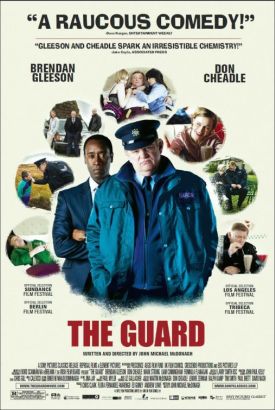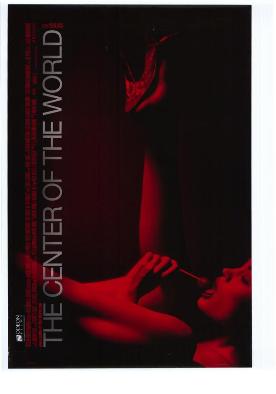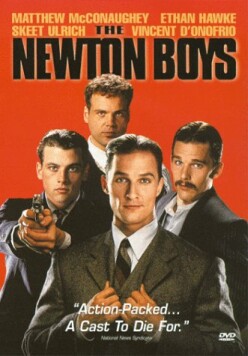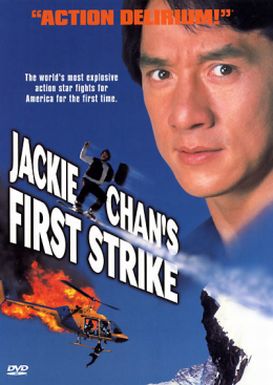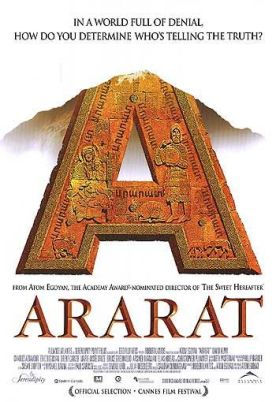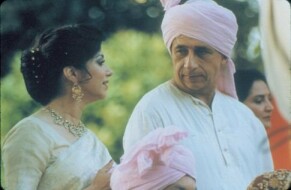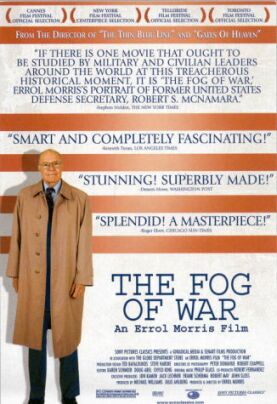Guard, The
If you liked In Bruges, (2008) which was written and directed by Martin McDonagh and starred Brendan Gleeson, the chances are pretty good you will also like The Guard, which was written and directed by John Michael McDonagh and stars Brendan Gleeson. John Michael is the brother of Martin both by blood and by style. Both write a demotic and vulgar version of the sort of Irish crosstalk act which, at least to judge by the parody of it in P.G. Wodehouse’s The Mating Season, used to be a staple of the Music Hall stage in its British heyday — doubtless to the distress of many sensitive, intelligent and non-violent Irishmen who were not fortunate enough to live in an age like ours where offensive stereotypes are banned or ostracized to the cultural fringes.
Well, it begins to look as if offensive stereotypes are making something of a comeback. The sole “memorable quote” listed by the IMDB for a movie shot through with wittily sparkling repartee is the avowal by its hero, Mr Gleeson’s Sgt. Gerry Boyle of the Garda, that he is Irish and that racism is a part of his culture. It is a clever line, you will readily apprehend, because it plays off the “multiculturalist” anxiety that all cultures should be respected. Naturally, the Irish version of multiculturalism would be to express a paradoxical protection under its aegis for racism. It will also be understood, however, that this is not real racism, or at least not racism as it is assimilated, according to current custom, to “hate speech.” There is nothing hateful about Sgt. Boyle’s needling of his black American odd-couple cross-talk partner, FBI Agent Wendell Everett (Don Cheadle). On the contrary, their often politically incorrect badinage is seen as a bonding mechanism and therefore A Good Thing, as in Gran Torino.
But it is also A Good Thing because it is A Bad Thing. You can tell because there are other Bad Things that our hero gets up to — including drug-taking, drinking on the job, corruption, surreptitious support for the IRA, and patronizing prostitutes — which are intended to be Good Things because he does them and because they bespeak the sort of authenticity that is as much the mark of today’s hero as a pure heart was of the pre-modernist one. He is also good to his mother (Fionnula Flanagan) who is dying of cancer and who, like him, is an inveterate carouser and hell-raiser, at least in her own estimation. No longer able to indulge herself in much of this kind of thing, however, and unhappy with the life that is left to her in some kind of hospice, she prefers to arrange her own departure from it — which is also a mark of authenticity and appears to serve as an example to her son.
The villains are also cool because they have philosophical arguments in the intervals between their cold-blooded murders. This, it has to be said, isn’t very original of them, however, and Nietzsche- or Schopenhauer-quoting bad-guys are rather a movie cliché these days, as are comical, sensitive and insecure ones like O’Leary (David Wilmot) who, on being called a psychopath by one of his at best slightly less psychopathic confederates angrily replies: “A sociopath, not a psychopath. There’s a difference. They taught me that in Mount Joy [prison].”
“What’s the difference?” asks psychopath number two.
“I don’t know,” replies O’Leary mournfully.
Mr Gleeson’s Gerry Boyle is what we might call, oxymoronically, a transgressive hero — which is pretty much the only way to be a hero these days unless you are (and, as The Dark Knight showed, sometimes even if you are) a superhero. Since being a hero is very much in conformity with traditional social rules and conventions and since being transgressive is very much not in conformity with them, the appeal of someone like Gerry lies in his contradictions. But in those contradictions there also lies a serious threat to dramatic coherence that can be summed up in the following question: why does our hero not take the bribe offered him by the chief of the bad-guys (Liam Cunningham)? We know that he’s not above a little corruption and that he takes drugs himself. Why shouldn’t he turn a blind eye to these drug dealers when everything conspires to make it easy for him to do so? Why, more importantly, does he charge into a hail of drug-dealer bullets knowing that it is a suicidal act? Is it because it is a suicidal act? Does he want to be re-united with his mammy? Or is he just sick of the quest for chemical oblivion in this bleak corner of County Galway?
There is, to be sure, a mystery at the heart of all heroic acts, and there are those whose opinions I respect who see Gerry’s as the act of an honorable man, perhaps bent on redeeming his various falls from grace by avenging a murdered partner (Rory Keenan) whom he despised in life. He is, indeed, close enough to a real — as opposed to a transgressive hero — to make this a possible reading of a film that is to that extent enjoyable. But I find the clever bit of plotting by which he appears in the end to have arranged for himself an exit strategy, if not from life then from Galway, just a little bit too reminiscent of the Tarantinian comic-book hero he so often resembles. The cool often aspire to join the ranks of the honorable, but they can only ever do so, to my eye, by the sacrifice of verisimilitude. To be transgressive is a refusal of reverence before something greater than oneself, to be brave an acceptance of same The two cannot easily or satisfyingly co-exist in one character without showing too much the signs of his creator’s artifice.
Discover more from James Bowman
Subscribe to get the latest posts to your email.

